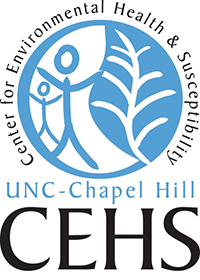Troester named new director of Center for Environmental Health and Susceptibility
April 1, 2017
Melissa Troester, PhD, has been named director of the UNC Center for Environmental Health and Susceptibility (CEHS), effective April 1.
Troester is professor of epidemiology at the UNC Gillings School of Global Public Health, research professor of pathology and laboratory medicine in the UNC School of Medicine and leader of the cancer epidemiology program at the UNC Lineberger Comprehensive Cancer Center. She has held leadership roles at CEHS since 2010, including as director of the center’s integrated health sciences facility core, pilot projects director, and most recently, deputy director.
 CEHS aims to translate interdisciplinary research on environmental health threats to improve public health in North Carolina by disseminating knowledge and technology across interdisciplinary groups of researchers in environmental health; fostering outstanding translational research and outreach in environmental cancer, cardiopulmonary disease and developmental disease; and responding to emerging environmental threats facing North Carolina and the United States. The center is funded by the National Institute of Environmental Health Sciences.
CEHS aims to translate interdisciplinary research on environmental health threats to improve public health in North Carolina by disseminating knowledge and technology across interdisciplinary groups of researchers in environmental health; fostering outstanding translational research and outreach in environmental cancer, cardiopulmonary disease and developmental disease; and responding to emerging environmental threats facing North Carolina and the United States. The center is funded by the National Institute of Environmental Health Sciences.
Following undergraduate and graduate studies in chemistry at Macalester College and University of Chicago, respectively, Troester’s research interests in cancer and the environment led her to pursue a doctoral degree in environmental health sciences at UNC-Chapel Hill, with a focus on identifying biomarkers for exposure to cancer-causing chemicals.
Her postdoctoral training at UNC Lineberger led her to evaluate biomarkers of early biological effects, linking toxic exposures to genetic profiles in breast cancer.
In 2006, Troester joined the faculty at the University of Massachusetts at Amherst and began studying normal breast responses to environmental exposure, which she continued in the UNC Gillings School’s Department of Epidemiology, beginning in 2008. She initiated the University of North Carolina Normal Breast Study, and led the National Institute of Environmental Health Sciences-funded Breast Cancer and the Environment Research Program (BCERP) from 2010 to 2015.
In leading the BCERP, Troester collaborated with Liza Makowski, PhD, associate professor of nutrition at the Gillings School, to use a research design linking laboratory and human studies to community engagement.
The approach is central to the mission of the Center for Environmental Health and Susceptibility.
“Advances in the research laboratory depend upon collaborations between experts, but also are accelerated and made more impactful by multidirectional communication with community members,” Troester said.
Throughout her research career, Troester has valued engaged scholarship, including teaching opportunities with breast cancer advocates, participating in University of North Carolina outreach opportunities, such as the Science Café lecture series and the Science Expo, both sponsored by UNC’s Morehead Planetarium and Science Center.
During her time with the BCERP program, Troester also led an advisory board in collaboration with Kathleen Gray, MSPH, director of the Community Outreach and Engagement Core. The board provided feedback that altered research priorities and improved communication outcomes.
Her research continues to focus on environmental causes of breast and other cancers, and uses an interdisciplinary, collaborative model to advance understanding of the ways in which the mechanisms of carcinogenesis affect breast cancer risk and survivorship.
Troester says she looks forward to linking UNC investigators with community engagement opportunities.
“I am very excited about building new opportunities and support for innovative, interdisciplinary research that results in understanding environmental health threats affecting the North Carolina public and beyond,” she said.
Troester succeeds James Swenberg, PhD, DVM, Kenan Distinguished Professor of environmental sciences and engineering, as CEHS director.
“I am grateful to Dr. Swenberg for his many years of excellent leadership of the center,” Troester said, “and I look forward to working with him during the transition.”
Swenberg noted that the center had contributed many important environmental health research discoveries during the last 16 years.
“I look forward to observing the center’s continued growth under Dr. Troester’s leadership,” he said.
Troester and Swenberg are organizing a fall 2017 symposium that will bring together key CEHS research and community engagement stakeholders to continue strategic planning for the Center’s future.
Gillings School of Global Public Health contact: David Pesci, director of communications, (919) 962-2600 or dpesci@unc.edu

